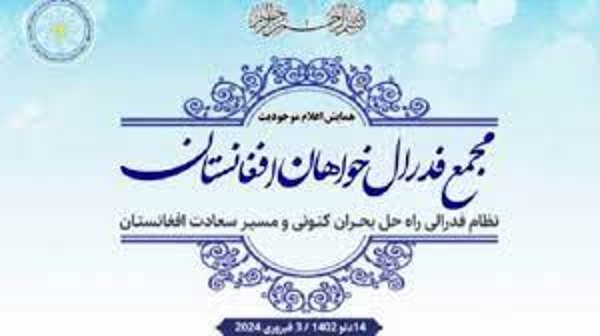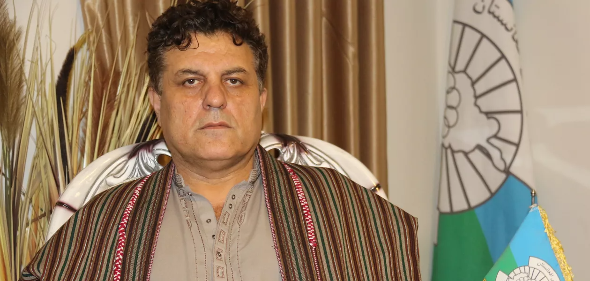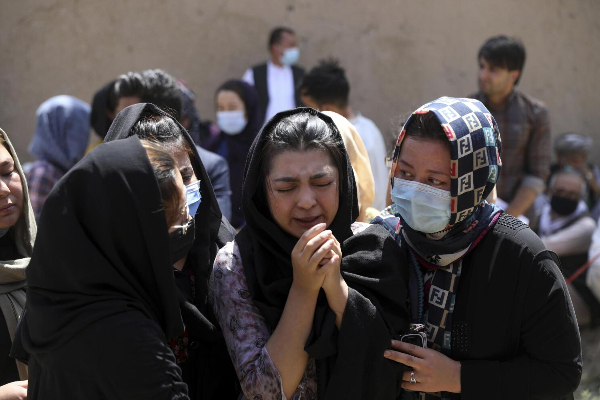President Ashraf Ghaniís spokesman Sediq Sediqqi has rejected claims in an article by The New York Times on Monday that the Afghan government has "sidelined spokesmen in an escalating misinformation war".

Sediqqi said the claims are "baseless".
Taking to Twitter, Sediqqi said "bizarre claims! For the record: there are more than 200 spokespersons in the Afghan Government, we have a strong access to info law with no limitation; there are 100s of statements issued by the top leaderships on access to information, flow and dissemination."
He said: "No journalist is in prison. 1000s of free media functions, no suppressing, no one in the government, including the President is afraid of criticism. There has been no crackdown on spokespersons. Information management, countering fake news, misinformation, ... and the Taliban propaganda, and managing the flow of information is the key responsibility of the Afghan government. It must not be considered as suppressing/denying, crackdown or being afraid of criticism, he tweeted.
On Monday, the New York Times reported that after Ahmad Jawad Hijri, the spokesman for the governor of Takhar Province, told the media that children were wounded in an Afghan airstrike in the province in October, government jailed him for three days and then fired him.
At the time officials in Kabul insisted that only Taliban fighters had been killed in the strike and that anyone who said otherwise would be prosecuted.
Hijri meanwhile told the New York Times that he saw the children himself.
"At the hospital I saw the wounded children," Hijri said. "I did not make a mistake," The Times reported.
The actions taken against Hijri signaled a shift in tactics by the Afghan government, The Times stated adding that news briefings that defined the early years of the war as both sides jockeyed to win Afghan hearts and minds have nearly ceased. That leaves its main players - the United States, the Taliban and the government - all testing different communication strategies to achieve their desired ends.
The Times quoted Patricia Gossman, associate Asia director of Human Rights Watch as having said the Afghan government is "so afraid of criticism, they are unwilling to admit to errors or hold themselves accountable."
"Itís ultimately self-destructive, but theyíre desperate to control information," she was quoted as saying.
In the past, the Afghan government was reticent about civilian casualties inflicted by the coalition or by Afghan forces, but local officials from areas where civilians were wounded or killed were allowed to speak about them freely.
Since October, the Ghani administration has muzzled provincial spokesmen and district governors, demanding that they stop relaying information to the news media, several Afghan officials from multiple provinces told The Times, especially relating to civilian casualties.
Last month, government announced it had barred provincial government spokesmen from sharing information with the media, raising concerns among lawmakers and journalists that the move will be a major setback for press freedom in the country.
On December 26, Rahmatullah Andar, spokesman for Ghaniís national security advisor said: "From now onward, governors will take the responsibility of providing efficient information to the media and the public, and spokesmen will continue their duties as public affairs officers on the basis of their working regulation."
Dawa Khan Menapal, a spokesman for Ghani, said at the time the decision was made "because some spokesmen had talked about some issues that had no truth and were against the policy."
He also said the role of provincial spokesmen will now be to pass on questions from the media to governors. District chiefs were also barred from media interaction.
Provincial spokesmen in many regions were often the only official sources of information to the media in Afghanistan, which has become one of the worldís most dangerous places for journalists.
At least five journalists have been killed in the country in the past two months while a former journalist who was the spokesman for government Public Protection Force was killed in a targeted explosion in Kabul on Sunday.
At the time of the clampdown against provincial spokesman, Nasir Ahmad Noor, head of local media watchdog NAI, said the ban will lead to the "spread of rumors and sometimes false information."
"When you do not have access to spokesmen and it is highly difficult to get to the governors, then you have to rely on accounts from unnamed sources," he said.
At the time, Seddiq also denied that government was trying to limit information, saying that the Afghan government has "been a pioneer in supporting our vibrant media and the enforcement of access to information laws which are unprecedented in the region."
But The Times reported Monday that ultimately, that according to a former US official, the Afghan governmentís decision to stifle information at the local level means that the Taliban have more space to control the narrative in the countryís districts where they are present but that Afghan officials have greater command over the national narrative.
LINK: https://www.ansarpress.com/english/21932
TAGS:






























 Ghani Removed From UN Heads of State List
Ghani Removed From UN Heads of State List 




